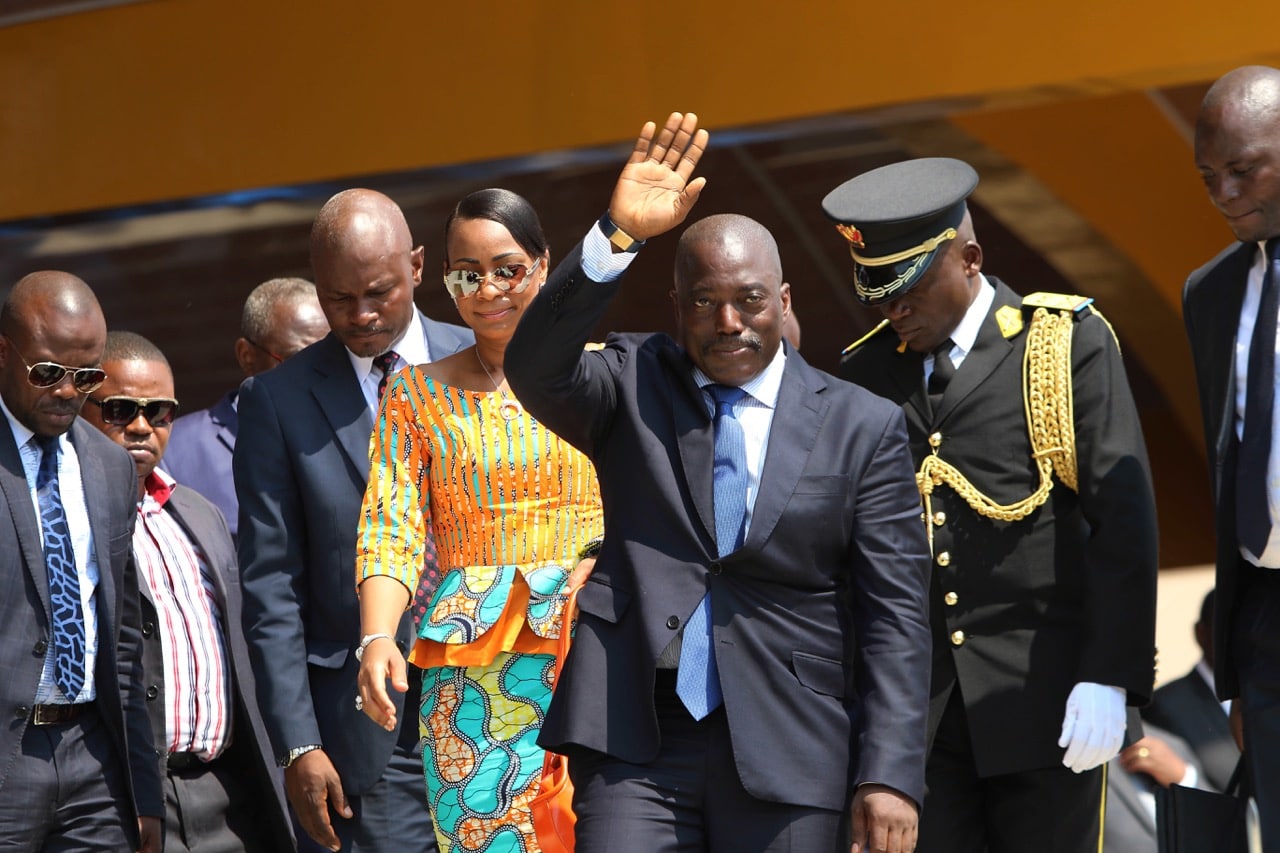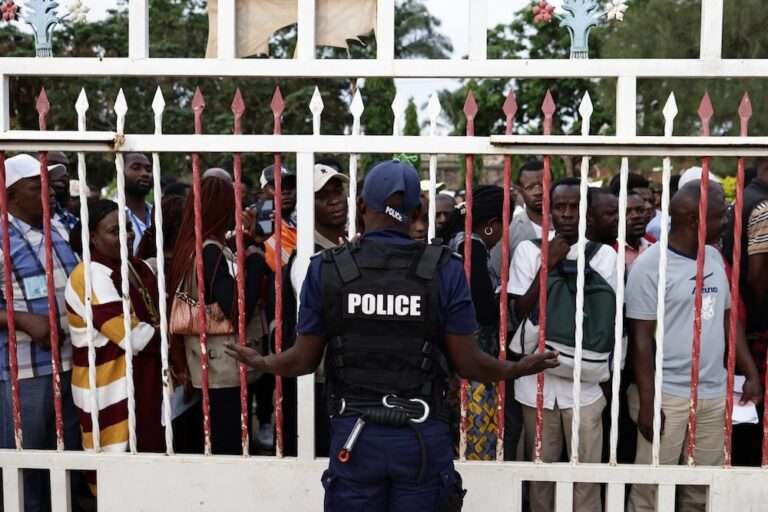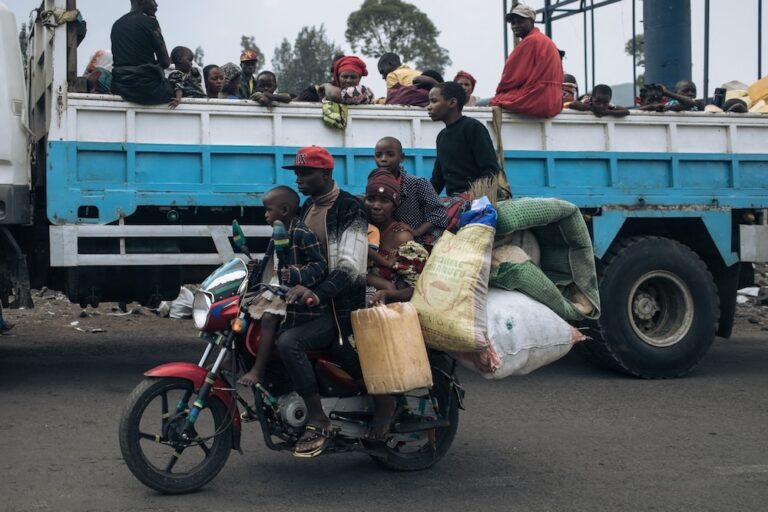15-year-old Binja Happy Yalala was beaten by police who accused her of being a sorcerer and detained her for over 10 hours. Her actual “crime” was that she had participated in a peaceful march.
This statement was originally published on hrw.org on 17 November 2017.
On Wednesday, Binja Happy Yalala, a 15-year-old secondary school student on Idjwi Island in eastern Democratic Republic of Congo, was beaten by police who accused her of being a sorcerer and detained her for over 10 hours. Her actual “crime” was that she had participated in a peaceful march organized by the citizens’ movement “C’en Est Trop” (“This is Too Much”).
The marchers were responding to a call from other citizens’ movements and civil society groups, and backed by political opposition leaders, for Congolese to mobilize on November 15, 2017 and demand that President Joseph Kabila leave office by the end of 2017 in accordance with the constitution and the New Year’s Eve agreement signed late last year.
The Idjwi protesters arrived at their local administrative office, singing the national anthem, to deliver a memo when the police commander gave the order to arrest them.
“The police immediately followed the order with brutality and violence,” said Binja’s father, who had joined the march with his daughter. “Some of us started to run, but others were taken immediately, including myself. They beat us with their fists and batons and kicked us. They said to us: ‘You all are rebels. We’re the ones who control the law. You will see how we’ll make you suffer.'”
When Binja saw her father and the others being arrested, she said she couldn’t just stand by and watch.
“I was scared, but it also made my heart ache because I didn’t understand what my father and the others had done wrong,” Binja told Human Rights Watch. “So I went up and asked the police to let them go. When they didn’t listen to me, I told them that I wasn’t going to leave without my father, so if they don’t release him they should arrest me too. Then without hesitating, one of them grabbed me roughly by the arm, beat my back with his gun, and tied my hands tightly behind my back. It hurt a lot, and I cried out. They then put me in the cell with my father and the others.”
Binja, her father, and the 11 others detained were soon taken to Idjwi territory’s main prison.
“They asked us a lot of questions about what had happened,” Binja said. “They beat my father because they said he had taught me things. He tried in vain to explain that I wasn’t a member of the movement. They then accused me of being a sorcerer, and they beat me again with their batons.”
Binja said that when they were all finally released about 10 p.m., she hurt all over and could barely walk.
In total, Congolese security forces detained at least 52 people on November 15 while they were participating in or planning small marches and demonstrations in Goma, Kasindi, Kindu, Kisangani, Kinshasa, and Idjwi. Most were later released, but eight remain in detention, including six in Goma and two in Kinshasa.
Two activists who police arrested in Goma on Monday while encouraging people to join the planned protests were still in detention.
On November 14, the day before the protests, the provincial police commander in Goma had instructed his forces to “mercilessly repress” the planned demonstrations, in a filmed message that was widely shared on social media.
The next morning, many people across Congo – including in Kinshasa, Lubumbashi, Mbandaka, Matadi, Mbuji-Mayi, Kananga, Goma, Idjwi, Beni, Kasindi, Butembo and Kisangani – woke up to the sight of a heavy deployment of security forces on their cities’ main roads. In several cities, streets were less crowded than usual, shops and markets remained closed, and many students stayed home from school. People stayed home as a sign of protest or to stay safe from any violent crackdown, or both. The few protesters who dared go out on the streets were often quickly arrested by security forces or dispersed by teargas.
The United Nations peacekeeping mission in Congo (MONUSCO) had urged Congolese authorities on November 14 to respect “the freedom to demonstrate in a peaceful and restrained manner” and to “allow all voices to express themselves calmly and peacefully.” The UN High Commissioner for Human Rights reinforced this appeal, calling on Congolese authorities to “halt the inflammatory rhetoric against protestors” and to ensure security personnel “receive clear instructions that they will be held accountable for their conduct during law and order operations in the context of demonstrations, regardless of their ranks or affiliation.”
In a joint statement published yesterday, the European Union, American, Swiss, and Canadian missions in Congo called on Congolese security forces to refrain from the excessive use of force and warned that those responsible could be held to account, including in an individual manner.
Many political prisoners and activists, arrested during previous political demonstrations or for their participation in other peaceful political activities, remain in detention. For a list and summary of a selection of these cases, please see here.
Congolese authorities should immediately release all those held for the peaceful expression of their political views, and should start working to create a climate conducive to the organization of free, fair elections.



